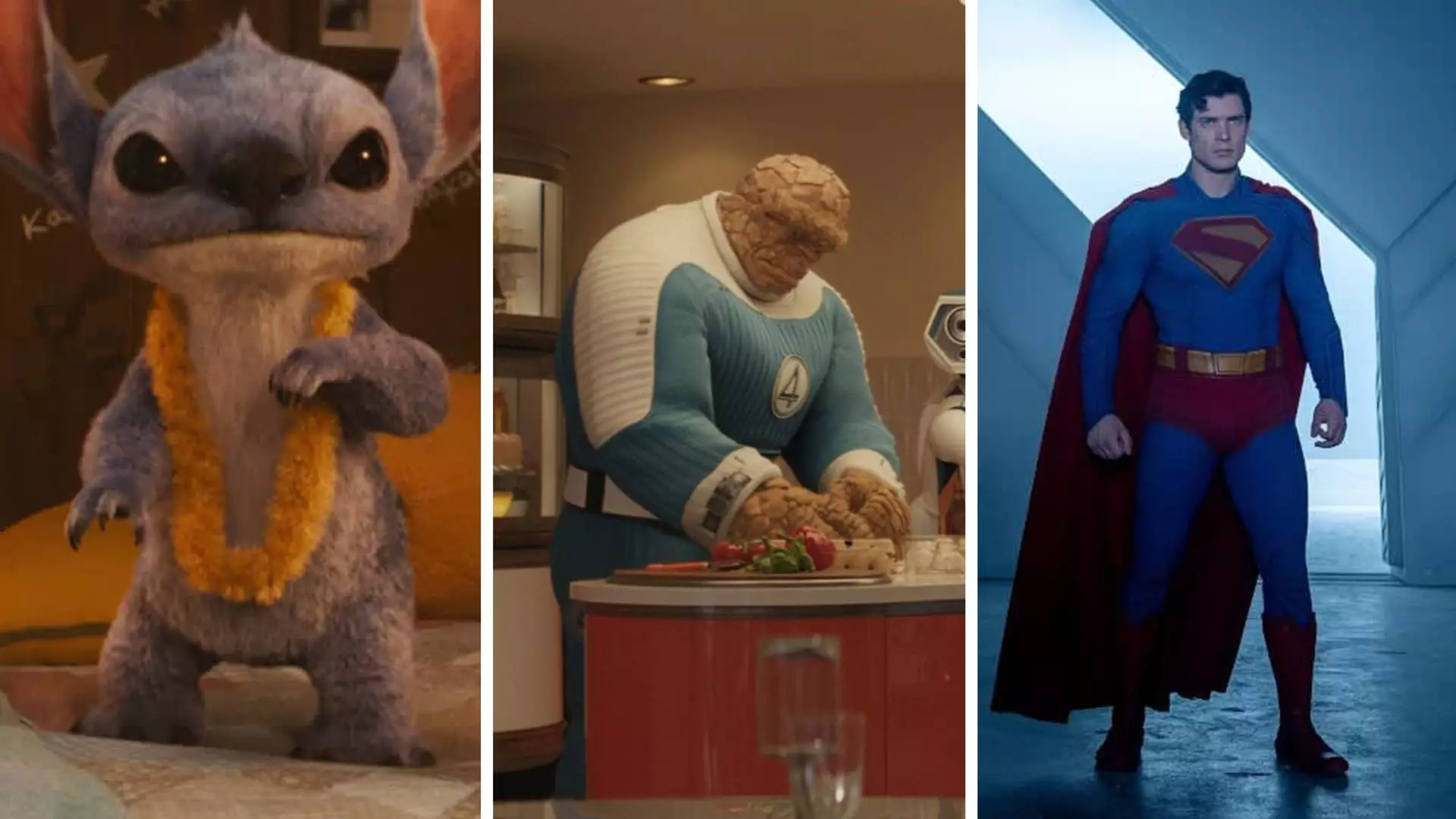For decades, Hollywood’s survival has been predicated on the myth of unstoppable box office momentum and genre dominance. Yet, beneath the surface of record-breaking summers, a more concerning reality is emerging: the industry’s reliance on spectacle over substance, franchise fatigue, and superficial hits masks a deeper malaise. This summer’s box office figures, oscillating around modest increases, do not signal a renaissance but rather a fragile veneer masking underlying vulnerabilities. Hollywood’s leaders and investors need to confront the reality that the current upswing is more a mirage than a sign of sustainable growth.
While the domestic box office may appear resilient—projected to reach around $3.75 billion—this figure merely represents a marginal uptick, insufficient to restore pre-pandemic vigor. The industry’s obsession with franchise tentpoles, CGI spectacles, and reboot fatigue has created a cycle of diminishing returns. Audiences are increasingly skeptical of yet another installment from beloved series or superficial remakes. The days where blockbusters juggernauted through theaters with genuine cultural significance seem distant. Instead, what remains is a pattern of underperforming big-budget films and a shrinking appetite for the predictable.
Superficial Spectacles Versus Genuine Connection
The entertainment industry’s strategy has heavily shifted toward packaging content that guarantees quick hits — superhero remakes, animated franchises, and reboots. While these titles initially attract audiences, their long-term viability diminishes when repeated ad nauseam. The disappointing domestic haul of major franchise films like “Superman” and “Wicked” sequels epitomizes this decline; they fail to achieve the blockbuster status of their predecessors. Meanwhile, Disney’s “Lilo & Stitch” remake modestly outperformed expectations, but it’s unlikely to sustain the momentum.
This transactional approach reflects a superficial understanding of audience loyalty. Audiences are increasingly discerning, seeking authentic stories that resonate beyond superficial spectacle. They are skeptical of the endless cycle of franchise films where creativity is sacrificed at the altar of franchise budgets. Hollywood’s failure to craft compelling original narratives has led to a predictable pattern: more noise, less meaningful connection. If these films continue to underperform, Hollywood will be forced to confront a truth: the era of guaranteed box office success through franchise fatigue is waning.
Economic Signals and Industry Confidence
Despite a perceived “resurgence,” the data suggests that Hollywood’s economic narrative is overly optimistic. During earnings calls, executives like Adam Aron and Sean Gamble tout a supposed industry revival, citing “solid audience numbers” and “steady streams of releases.” However, these aren’t indicators of a sustained boom but temporary fluctuations driven by occasional hits and the residual effects of pandemic-era pent-up demand. Much of this recent positivity may reflect a “dead cat bounce,” not a fundamental turnaround.
Furthermore, the anticipated lull in upcoming months supports the argument that we’re entering a period of fatigue. Industry insiders expect less explosive growth in August and September, with a more notable rebound only expected late November, driven by event films like “Wicked: For Good” and “Zootopia 2”. Yet, these are cautiously optimistic predictions; they hinge on studio bets that may not materialize as hoped. The industry risks banking on a handful of anticipated hits amid a landscape increasingly saturated with underwhelming releases.
Franchise Fatigue and the Future of Cinema
Hollywood’s reliance on franchises is a double-edged sword. It creates a false sense of security but fundamentally erodes creative innovation. Audiences have become jaded, craving fresh narratives and meaningful experiences. The industry’s fixation on the next big franchise sequel prevents investments in diverse, original stories that could genuinely restore interest in theaters. As ticket sales dip and audience engagement wanes, Hollywood is risking the very appeal that once made it a cultural powerhouse.
The fall-off in box office performance signals a possible paradigm shift. It’s a warning that the industry cannot simply coast on nostalgia and shallow spectacle forever. The market has reached a saturation point, and unless Hollywood recalibrates its creative compass, it may find itself increasingly marginalized. The real challenge lies in producing compelling content that transcends franchise brand recognition—content that speaks to the core human experience, not just superficial spectacle.
The Political and Cultural Implications
From a center-right liberal perspective, Hollywood’s current trajectory raises concerns about cultural decline and economic mismanagement. The focus on superficial content and franchise reliance aligns with a broader pattern of corporate complacency and short-term profit maximization at the expense of genuine cultural enrichment. Hollywood’s failure to innovate reflects a broader societal issue: the prioritization of branding, spectacle, and fleeting trends rather than substantive storytelling.
As audiences pull back from theaters, the industry must confront its cultural responsibilities. It has become a reflection of a society that increasingly values superficiality over authenticity. If Hollywood continues down this path, it risks alienating its core audience—those who crave content that challenges, enlightens, and endures beyond the fleeting spectacle. The decline in box office revenue serves as a stark reminder that superficial entertainment cannot sustain a vibrant cultural industry. If Hollywood is to remain relevant, it must embrace a modest shift towards authenticity and meaningful storytelling instead of the empty spectacle that has dominated recent years.

